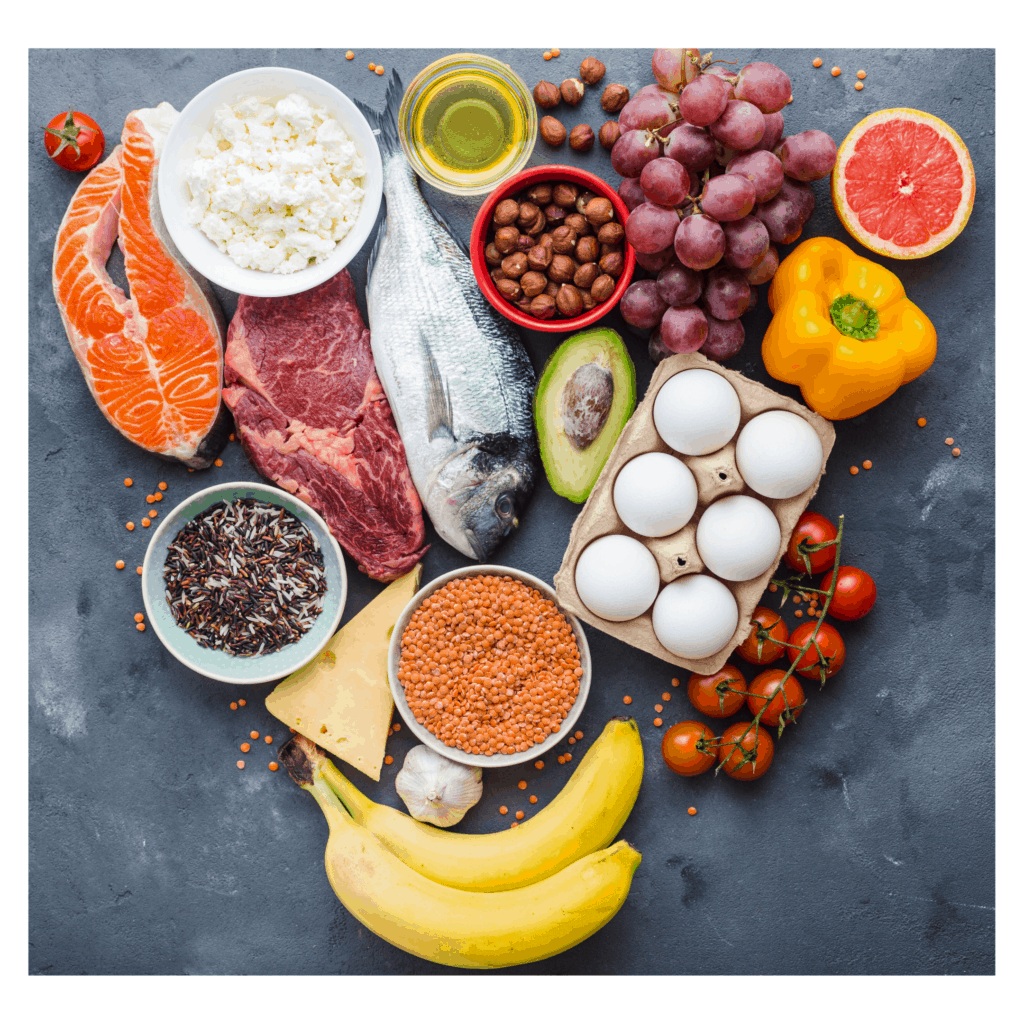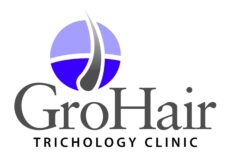
Have you overindulged this festive period?…I know I have!
January is the month many of us put diet, exercise and well-being at the top of our agenda, in a bid to shift those extra inches and be healthier. However, before you embark on the latest diet trend, spare a thought for your hair….
Crash diets or diets which significantly limit specific food groups can have a negative effect on your hair, leading to excessive shedding 2-4 months down the line (one of the many causes of a condition known as telogen effluvium).
So why does this happen?
Firstly, to better understand this let’s look at how our hair grows…

The hair grows in a cycle of 3 main phases:
1. Anagen (active growth stage) – a hair will grow for anywhere between 2-6 years, before entering the next phase. Largely dictated by age, genes and general health.
2. Catagen (transition stage) – during this phase cellular activity ceases and the hair will disconnect from its blood supply.
3. Telogen phase (resting stage) – This phase lasts around 3-4 months, during which time the hair will exit the scalp after being pushed out by a new anagen hair beneath.
Every hair grows independently to the next, which is why we don’t shed our hair all in one go. There are around 10% of our scalp hairs in the telogen phase at any given time, which equates to about 100 hairs shed each day (which is perfectly normal).
What can go wrong when dieting?….
Your hair maybe important to you, but unfortunately your body doesn’t consider hair growth a priority. So, when you restrict your nutritional intake, your hair will get pushed straight to the back of the queue in favour of your vital organs like the heart and liver.
Hair cells are amongst some of the fastest dividing cells of the human body, producing hair at a rate of roughly 0.3mm/1cm every 4 weeks. The energy and nutritional demands to achieve this are huge, and the hair requires a consistant supply to maintain the normal hair cycle.
The physical stress exerted on the body when we resort to crash dieting (this would be described as drastically reducing calorie intake or going for long periods without food on a regular basis), causes a proportion of anagen growing hairs to prematurely enter the telogen phase, increasing the amount of hair lost 2-4 months later.
What’s my advice for eating well and holding on to your hair?….
A healthy balanced diet! (boring I know). If you need to lose weight, do it steadily…I wouldn’t recommend consuming less than 1500 calories per day.

Eating foods from each food group is important to maintain overall good health, but there are some nutrients which are specifically important for hair growth:
Protein –Protein is known as the powerhouse nutrient and has many vital functions in the body including hormone production and cellular growth and repair. The hair is fundamentally made up of a protein called keratin, so if you lack in protein, your hair is likely to suffer! Protein is composed of smaller building blocks called amino acids, sulphur rich amino acids would be the most important for hair growth (cysteine and methionine). The best sources of these are found in lean meat, poultry, fish and eggs. Vegetarians and vegans can opt for nuts and seeds, grains and legumes such as Brazil/walnuts, quinoa, wild rice, kidney beans and couscous. I personally recommend trying to include a good protein source with 2 meals each day, include more if you are highly active (especially after exercise). How much protein do you need?….the current recommendation is 0.8 grams of protein per Kg of body weight. For those who struggle to eat protein regularly or have a restricted diet, there are some good protein supplements available for hair.
Iron – Low iron levels/iron deficiency is one of the most common causes of telogen effluvium. It affects more women than men, and more often below the age of menopause. There are 2 forms of iron, heme and non-heme iron. Heme iron is more bio-available, which means its easily absorbed by the gut. Heme iron can only be found in animal proteins such as lean red meat, poultry and fish. Non-heme iron is mostly found in plant based foods like nuts, seeds, dark leafy green vegetables and grains. Try to include a source of vitamin C with non-heme iron based foods to increase absorption. It is also wise to avoid tea, coffee and alcohol an hour either side of eating, as they can slow down uptake of iron.
Omega 3’s – These are important for scalp health, which encourages an ideal environment for hair growth. The body can’t make omega 3 fatty acids, so including sources in your diet regularly is essential. Good sources are Oily fish (salmon, mackerel, trout, sardines and herring). If you are going vegan this January, avocado, pumpkin seeds and walnuts are also good sources of omega 3 fatty acids. Aim to include omega 3 on a daily basis.
Vitamin B12 – Vitamin B12 is mostly found in animal sources (lean meat, poultry, seafood,eggs and dairy), so if you are planning to start a plant-based diet, its generally a good idea to supplement with B12. Look out for foods which are fortified with vitamin B12, such as cereals and soy/almond milks.
Fruit and Vegetables – in as many colours as you can manage! This will ensure you getting a good variety of vitamins and minerals. They are high in fibre which keeps you fuller for longer (curb those sweet cravings!), promoting a healthy gut and long term health in general.
However you choose to lose weight and be healthy this year, make sure you go about it in a safe manner and don’t deprive your body of the nutrients it requires to function properly. Food should be enjoyed not dreaded! The benefits of healthy eating should be sustainable for the long term…… there is no such thing as a quick fix diet that’s healthy for you or your hair.
If you need advice about how healthy your diet is for your hair, or if you have a hair or scalp issue, please get in touch. Contact details are on our website.
